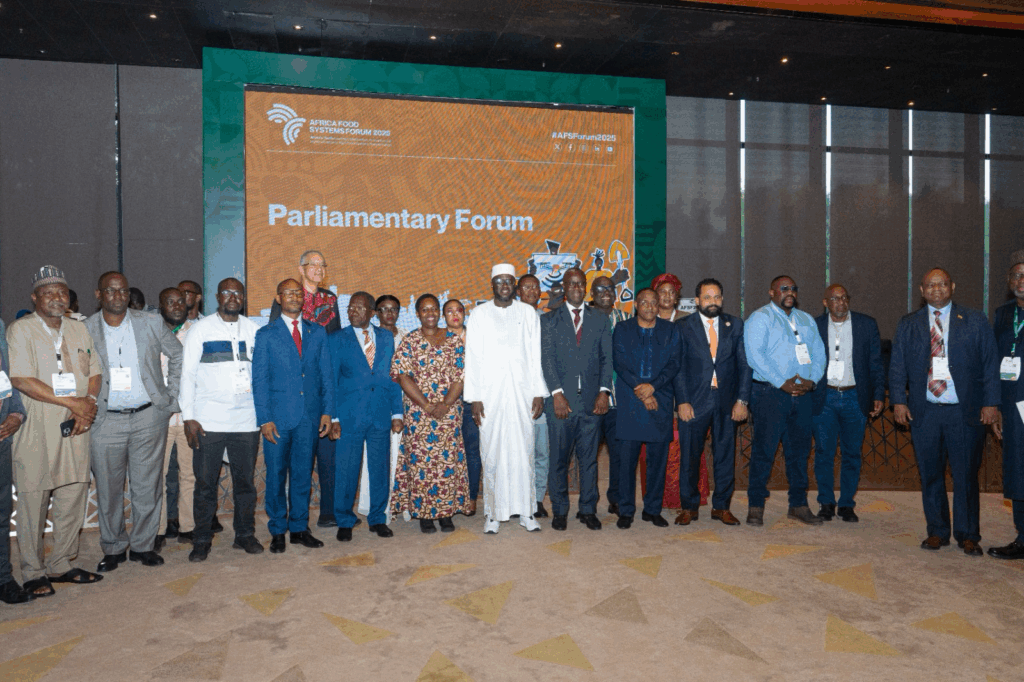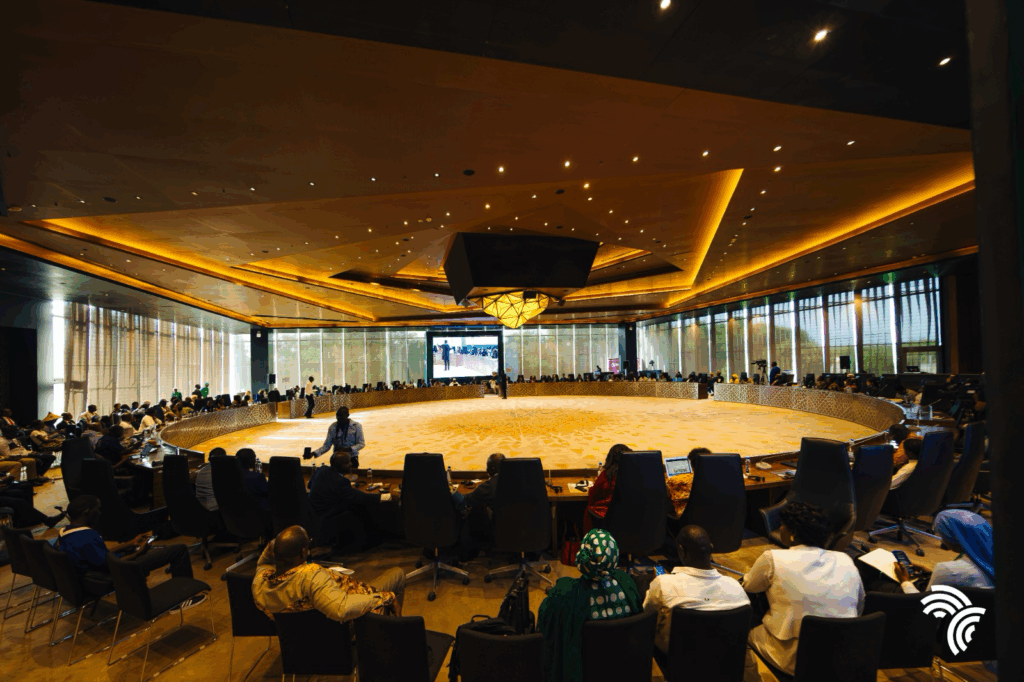
Chairperson of the African Food Systems Parliamentary Network (AFSPaN), Dr. Godfred Seidu Jasaw, is calling on Africa’s parliamentarians to take charge and lead efforts aimed at driving the transformation of the continent’s food systems.
Speaking at the Parliamentarians’ Forum during the Africa Food Systems Forum (AFSF) in Dakar, Senegal, he emphasised the crucial role of lawmakers in making the continent food secure.
“The acceleration we seek cannot be achieved by governments alone. Or by the private sector or the civil society alone. It must be powered by parliaments, acting as catalysts, connectors and guardians of the African food future,” he said.
“Acceleration is indeed the name of the game. Let us accelerate legislation, empower our farmers and make sure their efforts and energies are coordinated in ways that can give tangible outcomes that can be impactful in our societies,” he noted.
Dr. Jasaw, who is also chairman of the Food and Agriculture Committee in Ghana’s parliament, emphasised that parliaments have the influence needed to mobilise a wide range of stakeholders to improve food systems.

“We have the power of the purse. We have the power of budgetary oversight. We have the power of influence. And so the Kampala Declaration for the next 10 years requires that we act together.
“We are ready to work with you so that we can together ensure that the next 10 years are different from the last 30 years,” he said.
AFSF, an annual event organised by AGRA, is Africa’s premier platform for dialogue and action on food systems transformation.
“Over 6,000 attendees from about 113 countries held high-level discussions on transforming Africa’s agriculture. The forum was under the theme “Africa’s Youth Leading Collaboration, Innovation, and Implementation of Agri-Food Systems Transformation.”
“Today’s theme is about youth innovation and the future. Above all, parliamentarians must and will champion the voice of Africa’s youth, young women and men,” he said.
“They are the backbone of our farms, our markets and innovation hubs. They are not waiting passively for a seat at the table—they are already shaping and reshaping food systems with new technologies, entrepreneurial ventures and climate-smart practices,” he said.
“Our responsibility is to open the door wider for them. Have policies and expand access to land, finance and markets so that their innovations can flourish and give outcomes that can reach all citizenry,” Dr. Jasaw added.
The Forum took place against a backdrop of growing urgency over food insecurity on the African continent.
After nearly two decades of implementing the Comprehensive Africa Agriculture Development Programme (CAADP), recent Biennial Review reports reveal that Africa is not on track to meet the Malabo Declaration targets to enhance food security by 2025.
With the continent now transitioning into the Kampala CAADP Strategy and Action Plan (2026–2035), the focus has shifted toward a broader agrifood systems transformation agenda.
This new phase prioritises inclusive and coordinated actions, especially from parliaments, to ensure effective implementation of policies, strategic investments, as well as robust oversight.
The Kampala Declaration calls on lawmakers to integrate food systems commitments into national budgets and strategies, operationalise them through National Agrifood Systems Investment Plans (NASIPs), and ensure at least 10% of annual public expenditure is allocated to agrifood systems.
For Dr. Jasaw, although food system challenges are complex, the capacity of parliaments to help deal with them exists.

“Food systems with their complexity and interconnections require more than just political will, more than just those political commitments,” he said.
“We need robust evidence and reliable data that can identify interventions and generate the greatest impact for nutrition, strengthen climate resilience, promote inclusive economic growth, and guide the scaling of innovations with proven results,” he added.
The Forum also served as a launchpad for AFSPaN’s next strategic phase. AFSPaN is a network of MPs who are working together to amplify the objectives of the Comprehensive Africa Agriculture Development.
MPs in the network undertake the necessary monitoring of governments’ performance in implementing the CAADP and ensure the targets are met.
In collaboration with the Parliament of Senegal, the network developed a Parliamentary Roadmap on food systems transformation.
The roadmap will facilitate structured dialogue and actionable commitments to support inclusive policymaking, youth-informed legislation, and greater accountability.